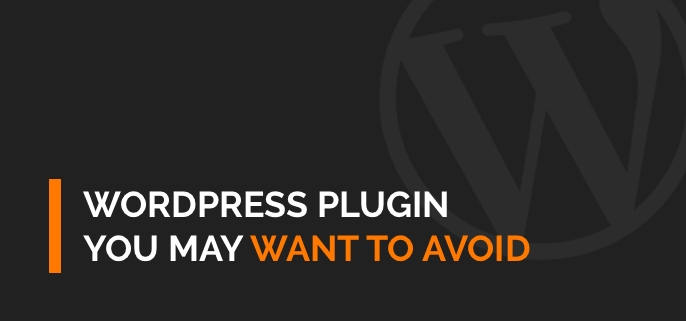WordPress plugins are mostly useful. They come with functions and features that enhance the WordPress platform. They make it easier to publish content and create a more attractive and engaging blog or website. However, not all of them can be helpful. There are those you may just have to avoid. The following are some of them.
Various “Related Posts” Plugins
Related Post plugins are those created to display similar, featured, or popular posts on the sidebar or at the bottom end of a post. They are usually used to keep visitors on the site or blog as they display related content visitors might be interested in. They appear as post snippets with thumbnails, thumbnails with titles, or simply post titles. Their appearance, in a way, can enhance the design or overall look of a blog. It’s not their appearance, though, that poses a problem. It’s what happens behind the scenes, as the plugin indexes and sorts posts. A number of related post plugins are recommended to be avoided especially for those who are on shared hosting.
There are several plugins that have already been blacklisted by major web hosts. These include Contextual Related Posts, Similar Posts, WordPress Popular Posts, Yet Another Related Posts Plugin, and Yet Another Featured Posts Plugin. These plugins have been blacklisted for being intolerably resource-intensive. Also, some of them are already deemed obsolete.
If you are looking for a good plugin that does something similar to what the aforementioned plugins do, try Contextly and LinkWithin. You can also try Outbrain, which is something many major reputable sites are using.
Various Backup Plugins
It is extremely important to have backup for your WordPress blog or site. However, nowadays, many WordPress hosting packages already come with backup functions. Many of them perform daily backups. If you want to double your data security, you can use safe options like BackupBuddy and VaultPress. Don’t waste your time installing the following: The Codetree Backup, EZPZ One Click Backup, WPOnlineBackup, WP DB Backup, BackupWordPress, Updraft, and Versionpress. They have already been blacklisted by major web hosting service providers not necessarily because they are proven harmful (although some are regarded as potentially harmful). It’s because they perform a duplicate, unnecessary function.
Various Stats Plugins
WordPress plugins that record and process statistics are resource-intensive. If you get one, you need to make sure it is efficient and is not going to consume a lot of your limited server resources. You can just rely on Jetpack or Google Analytics to be safe. Avoid using these blacklisted statistics plugins: JR Referrer, WP Slimstat, Statpress, and WP Postviews. They have already been banned by a few major web hosting companies for being resource-intensive.
Various Caching Plugins
If you got a managed WordPress hosting plan, there should be no more reason to get a website caching plugin like WP Cache, WP File Cache, WP Super Cache, W3 Total Cache, or Wordfence. These plugins are just going to provide duplicate functionality. Caching is already expected to be the function of the web host. Installing these plugins may only create conflicts or serious problems with the caching system employed by the web host. If your web host does not provide caching functions, perhaps it should be a new web host you should be looking for, not plugins.
Various SEO Plugins
If you have been a WordPress blogger or website owner for a long time, you likely have encountered the Yoast SEO plugin. It’s a great SEO plugin used by many WordPress sites and blogs. There should be no more need for the following resource-intensive plugins: Fuzzy SEO Booster, Broken Link Checker, and Google Sitemap Generator. There are several other SEO plugins worth listing here. Basically, if you already have Yoast, consider your SEO needs adequately covered (as far as WordPress is concerned).
Others
Other WordPress plugins you may want to avoid are database management plugins such as Adminer and Portable PHPMyAdmin. You also don’t need WordPress GZIP Compression, WP-PHPMyAdmin, and WP DBManager for database management. The functions they serve are already addressed by most web hosts. Also, consider ditching or veering away from plugins known to have security issues. These include WP Copysafe PDF, Toolspack, WordPress Beta Tester, and WP Mailinglist. If you want to ensure a fast and secure WordPress business website, you should stay away from these plugins.
If you are looking for a plugin for image optimization, avoid Ewww Image Optimizer. It sucks up a lot of resources without offering anything spectacular. If you really like this plugin, just use its cloud version. There’s no need to install it on your WordPress.
Moreover, don’t be misled into believing that a plugin’s age is a cue for its being a good plugin to use. Hello Dolly or Hello.php, for example, is one of the oldest WordPress plugins around. However, it has already ceased to be useful. It has already been blacklisted by WPEngine for being nonfunctional. It no longer has any practical purpose for modern blogs and sites.
***
Plugins can enhance your WordPress blog. Just make sure you are choosing the right plugins to install. There may be quite a number of to-be-avoided plugins listed here but realize that these don’t mean that WordPress is littered by multitudes of unnecessary and unwanted plugins. Only a very small fraction of WordPress plugins can be considered unnecessary, harmful, and defective. There are still thousands of plugins to choose from.

